Discover Our Fake History
Our Fake History

289 Episodes
Reverse
Buffalo Bill's Wild West first started touring outdoor arenas in 1883. What started as a western themed circus soon grew in ambition. In the quest to appeal to respectable middle-class family audiences Buffalo Bill was soon promoting his show as an educational experience. The Wild West was supposedly an authentic exhibition of Western American history and culture. Elaborate historical reenactments became key parts of the program. However, these reenactments were rarely accurate and were often totally fictional. What kind of a story was Buffalo Bill trying to tell about America? Tune-in and find out how tiny sharp-shooters, signed pictures of Sitting Bull, and a bow from Queen Victoria all play a role in the story.Join us in Greece in 2026! Check out the itinerary and book HERE!Check out the merch at out T-Public store HERE! See Privacy Policy at https://art19.com/privacy and California Privacy Notice at https://art19.com/privacy#do-not-sell-my-info.
Buffalo Bill Cody was one of America's great mythmakers. The man born William Cody reinvented himself as the west's greatest rider, scout, and buffalo hunter before taking his schtick to the American stage in the early 1870's. Buffalo Bill would eventually develop his frontiersman act into the Wild West Show, an outdoor exposition that was part circus, part rodeo, and part historical reenactment. Between 1883 and 1913 the show was seen by millions. "Buffalo Bill's Wild West" helped reinforce popular legends about the American West and essentially invented the "western" entertainment genre. The man behind the show was a liar and hum-bug artist in the vein of P.T Barnum. How did Bill's mythical version of the west affect popular understandings of history? Tune-in and find out how 19th century social media influencers, fake duels, and Buffalo Bill's Buffalo Blob all play a roll in story. Join us in Greece in 2026! Check out the itinerary and book HERE!Check out the merch at out T-Public store HERE! See Privacy Policy at https://art19.com/privacy and California Privacy Notice at https://art19.com/privacy#do-not-sell-my-info.
In this bonus episode Sebastian takes questions about the recent episodes on Thailand's legendary elephant duels and the seafaring Welsh Prince Madoc. The host does his best to pinpoint the "real" last elephant duel and takes questions from a practicing druid. We also hear from a Welsh listener with some fascinating thoughts about the Madoc episode.Join us in Greece in 2026! Check out the itinerary and book HERE!Check out the merch at out T-Public store HERE! See Privacy Policy at https://art19.com/privacy and California Privacy Notice at https://art19.com/privacy#do-not-sell-my-info.
There's a story that in the year 1170 a Prince from Wales, named Madoc, led a group of Welsh colonists over the Atlantic to North America. This group allegedly mingled with the local indigenous people and eventually assimilated into their culture. However, they left behind their language. For centuries it was believed that a lost tribe of welsh-speaking indigenous people lived somewhere in America. Is there anything to the legend of Prince Madoc or is this just a strange case of fake history? Tune-in and find out how penguins, elephants in Virginia, and Welsh utopians all play a role in the story. Join us in Greece in 2026! Check out the itinerary and book HERE!Check out the merch at out T-Public store HERE! See Privacy Policy at https://art19.com/privacy and California Privacy Notice at https://art19.com/privacy#do-not-sell-my-info.
One of the most pivotal moments in the history of Thailand was the Battle of Nong Sarai in 1593. This confrontation between the Burmese Tuangoo Dynasty and the proto-Thai kingdom of Ayutthaya is remembered as the setting for an epic elephant duel. King Naresuan of Ayutthaya was said to have challenged the Burmese crown prince to single combat on elephant back. His victory that day become symbolic of Thailand's independent spirit. However, there are at least ten different accounts of what actually went down at Nong Sarai in 1593. Each of those sources paint a very different picture of how this confrontation played out. Which sources should we trust? Was this duel actually an elephant sized historical myth? Tune-in and find out how horny elephants, dishonorable gunplay, and damaged hats all play a role in the story. Join us in Greece in 2026! Check out the itinerary and book HERE!Check out the merch at out T-Public store HERE!See Privacy Policy at https://art19.com/privacy and California Privacy Notice at https://art19.com/privacy#do-not-sell-my-info.
In this Bonus Episode Sebastian takes questions from listeners about the recent episodes on Werewolves and Witches. Sebastian explores the connection between rabies outbreaks and vampire/werewolf mythology. Listeners weigh in on the psychological meaning of the Egyptian god Anubis. We break down some witchy myths associated with English alewives and explore the inspiration for Shakespeare's witches. Tune-in and find out how vampire panics, furry psychopomps, and pointy hats all play a role in the story.Join us in Greece in 2026! Check out the itinerary and book HERE!Check out the merch at out T-Public store HERE!See Privacy Policy at https://art19.com/privacy and California Privacy Notice at https://art19.com/privacy#do-not-sell-my-info.
In 1487 a scandal prone Dominican inquisitor published one of the most notorious witch-hunting manuals in history. The Malleus Maleficarum, or Hammer of the Witches, argued that Europe was under siege by witches and that these witches were almost exclusively female. The book was one of the first widely available texts that presented witchcraft as a uniquely female evil. By the end of 1500's women had become the main victims of the most outrageous witch-hunts, accounting for 85% of all people who executed as witches. Should the Malleus Maleficarum be blamed for this? Tune-in and find out how alewives, hot demons, and a "witch bull" all play a role in the story.Join us in Greece in 2026! Check out the itinerary and book HERE!Check out the merch at out T-Public store HERE!Go to drinkag1.com/FAKE get a FREE Welcome Kit, including a bottle of Vitamin D and free AG1 Travel Packs, when you first subscribe.See Privacy Policy at https://art19.com/privacy and California Privacy Notice at https://art19.com/privacy#do-not-sell-my-info.
Stories about human beings transforming into wolves are as old as literature itself. Even the ancient Mesopotamian Epic of Gilgamesh featured a story of a man becoming a wolf. The Werewolf may be one of our most ancient and historically durable monsters. Could Werewolf stories reflect a distant, if blurry, historical memory? Belief in real werewolves seems to have peaked during the witch-panics of 16th and 17th centuries. How should we understand the people who confessed to being real werewolves? Tune-in and find out how sympathetic wounds, enchanted girdles, and werewolf ointment all play a role in the story. Join OFH in Greece in 2026! Click HERE to explore the itinerary!See Privacy Policy at https://art19.com/privacy and California Privacy Notice at https://art19.com/privacy#do-not-sell-my-info.
In this bonus episode Sebastian answers questions from listeners about the recent series on the Parthenon Marbles. The host tangles with the ethics of repatriation requests from notorious dictators, the role of the Parthenon Marbles in inspiring the Greek Independence movement, and the path towards a true "universal museum." Sebastian also wrangles with the notorious "If I don't do it, somebody else will" argument that is often used to defend Lord Elgin. Tune-in and find out how Saddam Hussein, Dr. John, and a bunch of other history podcasts play a role in the story.See Privacy Policy at https://art19.com/privacy and California Privacy Notice at https://art19.com/privacy#do-not-sell-my-info.
The Parthenon Sculptures have been hugely controversial objects from the moment that they arrived in England. The British public has long been split over the morality of keeping these famous works of art in London. In the early 1800's the famous poet Lord Byron went so far as to write angry poems castigating Lord Elgin for defiling Athena's temple. Over the last 200 years the topic of the sculptures has remained a perennial topic of public debate. Where are we at with that debate in 2025? Tune-in and find out how 19th century diss tracks, half a nose, and the "universal museum" all play a role in the story.Come with me to Greece in September 2025! Check out the full itinerary HERERula patients typically pay $15 per session when using insurance. Connect with quality therapists and mental health experts who specialize in you at https://www.rula.com/fakehistory #rulapodSee Privacy Policy at https://art19.com/privacy and California Privacy Notice at https://art19.com/privacy#do-not-sell-my-info.
The Parthenon Sculptures, also known as the Elgin Marbles, are some of the most controversial museum objects in the world. In the early 19th century the Scottish aristocrat Thomas Bruce, the seventh Earl of Elgin, used his position as Ambassador Extraordinary to the Ottoman Empire to gain access to Athens' historic acropolis and remove priceless works of ancient art from the Parthenon. Since that time both the legality and the morality of the acquisition has been the source of controversy. Unfortunately, the debate around the Parthenon sculptures has been clouded by many historical myths and misconceptions. Should the marbles remain in the British Museum, or should they be returned to Athens? Tune-in and find out how a gift of ammunition, an "Old Turk", and lies to Parliament all play a role in the story.Join Sebastian in Greece in 2026! Click HERE for a full itinerary and booking.See Privacy Policy at https://art19.com/privacy and California Privacy Notice at https://art19.com/privacy#do-not-sell-my-info.
In this throwback episode Sebastian takes you to the conclusion of this fan-favorite season 3 series. Almost as long as people have been telling stories about Robin Hood, historians have been trying to find the real person who inspired the legend. Over the centuries dozens of researchers have cooked up elaborate theories in an attempt to locate the man who became the myth. Were any of them successful in finding a “real” Robin Hood? Tune-in and find out how piggy-back-rides, dog-summoners, and fake family trees all play a role in the story.See Privacy Policy at https://art19.com/privacy and California Privacy Notice at https://art19.com/privacy#do-not-sell-my-info.
In this throwback episode Sebastian takes you back to this fan favorite episode from Season 3. Robin Hood is easily one of the most beloved characters in English storytelling. For centuries the forest outlaw has been the ultimate hero of the downtrodden. He steals from the rich, gives to the poor, and resists tyranny in all of its forms. But, is Robin Hood just a fictional character, or could there have been a real person who inspired the legend? By taking a close look at the earliest Robin Hood ballads perhaps we can find some clues about the true identity of this mythic outlaw. Tune-in and find out how forest elves, Kurt Cobain, and Kevin Costner’s bad accent all play a role in the story.See Privacy Policy at https://art19.com/privacy and California Privacy Notice at https://art19.com/privacy#do-not-sell-my-info.
From Jonestown to Heaven’s Gate, to the Octopus Murders and the Waco Siege, the world is full of deception, manipulation, and destruction. Listen to Conspiracy Theories, Cults, and Crimes every Wednesday as we explore the real people at the center of the world’s most shocking secrets and nefarious organizations. Conspiracy Theories, Cults, and Crimes is a Crime House original powered by PAVE Studios. Follow the show now so you don’t miss a single story. LISTEN NOW! https://www.pavestudios.com/shows/conspiracy-theories-cults-and-crimes See Privacy Policy at https://art19.com/privacy and California Privacy Notice at https://art19.com/privacy#do-not-sell-my-info.
In this throwback episode Sebastian takes you back to the conclusion of one of OFH's most popular series. In classic samurai films the swordsman Miyamoto Musashi was always presented as rough but honourable. The real Musashi may have been considerably more complicated. If we look closely at some of the samurai’s most famous duels, we may find reason to question Musashi’s reputation as the ultimate “lone wolf”. Tune-in and find out how pot-lid duels, swords carved from oars, and a Samurai/Ninja showdown all play a role in the story.Rula patients typically pay $15 per session when using insurance. Connect with quality therapists and mental health experts who specialize in you at https://www.rula.com/fakehistory #rulapodSee Privacy Policy at https://art19.com/privacy and California Privacy Notice at https://art19.com/privacy#do-not-sell-my-info.
In this throwback episode Sebastian revisits an incredibly fun series from Season 3. The samurai swordsman Miyamoto Musashi is the archetypal lone-wolf warrior. Legend has it that in course of his life he fought over sixty duels and never once lost. His psychological strategies and unique two-sword fighting style made him one of the most famous martial artists in Japan’s history. However, many of Musashi’s most celebrated exploits have been distorted by centuries of myth-making. What should we believe about the famously scruffy swordsman? Tune-in and find out how flabbergasted monks, Harry Potter, and Samurai Forest Gump all play a role in the story.See Privacy Policy at https://art19.com/privacy and California Privacy Notice at https://art19.com/privacy#do-not-sell-my-info.
The beloved children's novel The Wonderful Wizard of OZ has been celebrated as the quintessential American fairytale. But, many believe that the book is more than just a pleasing adventure story for kids. It's been argued that hidden in the text is a subtle allegory that satirizes the politics of late 19th century America. Some believe that the author L. Frank Baum used his fantasy story to make a point about the election of 1896 and the candidates William Jennings Bryan and William McKinley. However, many Baum biographers have disputed this claim. Was L. Frank Baum writing a populist parable or does that idea stem from a deep misunderstanding of his politics? Tune-in and find out how dorm-room bonding rituals, the Great Gig in the Sky, and Sebastian's greatest moment of synchronicity all play a role in the story.Class starts soon, so enroll today! For a limited time, IDEO U is offering my listeners 15% OFF SITEWIDE! Go to ideou.com/OFH.See Privacy Policy at https://art19.com/privacy and California Privacy Notice at https://art19.com/privacy#do-not-sell-my-info.
In this Bonus Episode Sebastian answers questions from listeners about the recent series on President McKinley. He discusses the challenges associated with using a book written by Karl Rove, conspiracy theories around the destruction of the USS Maine, and the complicated political legacies of Theodore Roosevelt and Marc Hanna. One listeners also provides some fun 19th century political slander-rhymes! Rula patients typically pay $15 per session when using insurance. Connect with quality therapists and mental health experts who specialize in you at https://www.rula.com/fakehistory #rulapod Our Fake History listeners can grab Rosetta Stone’s LIFETIME Membership for 50% OFF! That’s unlimited access to 25 language courses, for life! Visit rosettastone.com/HISTORY to get started and claim your 50% off TODAY! Don’t miss out—go to Rosettastone.com/HISTORY and start learning today! See Privacy Policy at https://art19.com/privacy and California Privacy Notice at https://art19.com/privacy#do-not-sell-my-info.
It's impossible to assess the historical reputation of President William McKinley without tangling with the Spanish-American War. In this final part of the William McKinley trilogy Sebastian gets into the debate around what actually lead to the war. Could a war with Spain have been avoided? Was McKinley pushed into it by a manipulative American press? How did the outcome of the "splendid little war" change America, McKinley, and the world? Tune-in and find out how jingoes, yellow journalism, and the worst-timed naval accident in history all play a role in the story.See Privacy Policy at https://art19.com/privacy and California Privacy Notice at https://art19.com/privacy#do-not-sell-my-info.
The 1896 election of William McKinley has been noted as an inflection point in American politics. But, historians are often conflicted about what story they want to tell. It could be seen as moment when Americans rejected a populist firebrand, critical of the wealthy and appealing to working class consciousness. It could also be seen as the moment when American industrialists, bankers, and other monied interests took an activist role in American politics. Was William McKinley simply a puppet of "big money" or is there more to this story? Tune-in and find out how king-makers, front porch campaigns, and crucifixion on a cross of gold all play a role in the story.Visit Rosettastone.com/HISTORY to get started and claim your 50% off TODAY!See Privacy Policy at https://art19.com/privacy and California Privacy Notice at https://art19.com/privacy#do-not-sell-my-info.






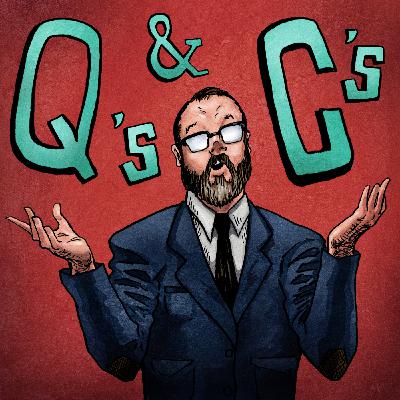
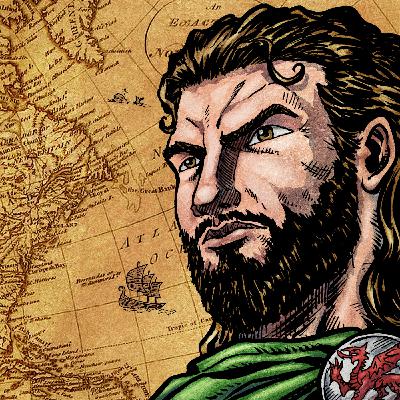
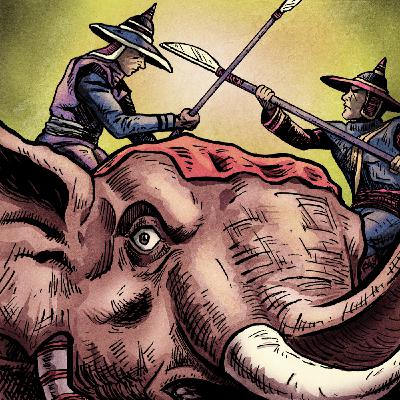


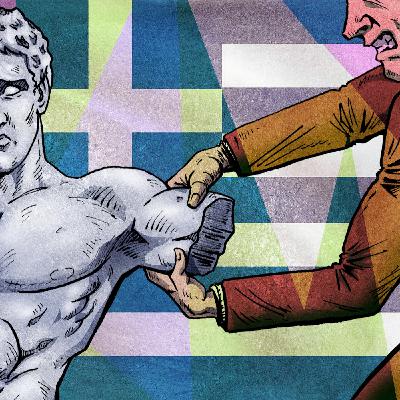
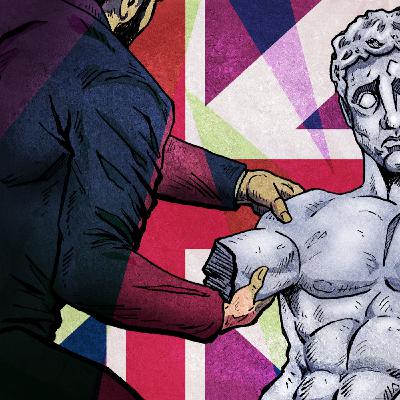


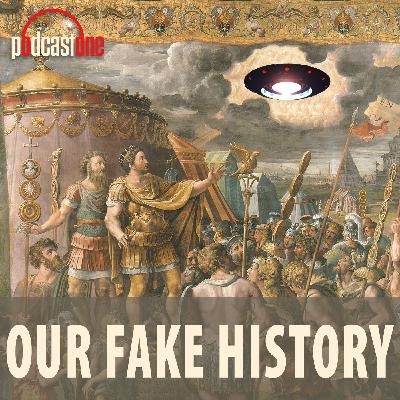



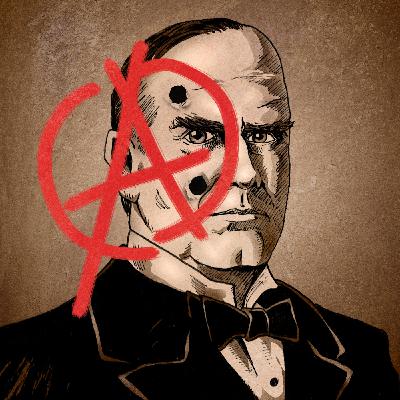




Don't get me wrong, I love this show but the long introductions are a little strange. This one was over 20 minutes long. That's soooo long. I think most of it could have just been delivered as part of the main episode.
I enjoy the show but the intro just isn't long enough. Should be a full hour instead of this 20 min nonsense. Also this is sarcasm. Im being sarcastic.
I like the chair creak at 55:14, as you settle back to explain another point.
Hello from Iran, in 2024! 🙋🏻♀️
🔴✅📺📱💻ALL>Movies>WATCH>ᗪOᗯᑎᒪOᗩᗪ>LINK>👉https://co.fastmovies.org
it's likely impossible but I'd love some confirmation of just how big of an effect ergot poisoning has had on history.
10 minutes in and the preamble ends....I used to listen to this podcast but gave up for that reason. Thought I'd check in to see if things have changed...at least half of each episode is just waffle.
Christopher columbus was a proto fascist scumbag.
23 minutes into an hour of podcast: "let's dive in!" 😅
I'm really upset Ring Around the Rosey isn't a reference to the Black Death. ive been spreading that fun fact my entire life.
One of the most entertaining & enlightening podcasts out there. Zero chatter, maximum information & a great presenter. I never miss it. Fabulous.
It starts at 18.47.
just fast forward to 19:15
good lord, how many intros do we need???
Astonishing Legends has an excellent Elizabeth Bathory series. I suggest you go listen to those as well.
super sus!
I was not familiar with this conspiracy but it is certainly very interesting at the very least.
20 fucking minutes into, are you sure your a teacher?
your getting there, trim about 8 minutes off the intro section and it wont be a segment anymore and ture intro again you can do it!
12 minute intro , yeash.... I miss the original format